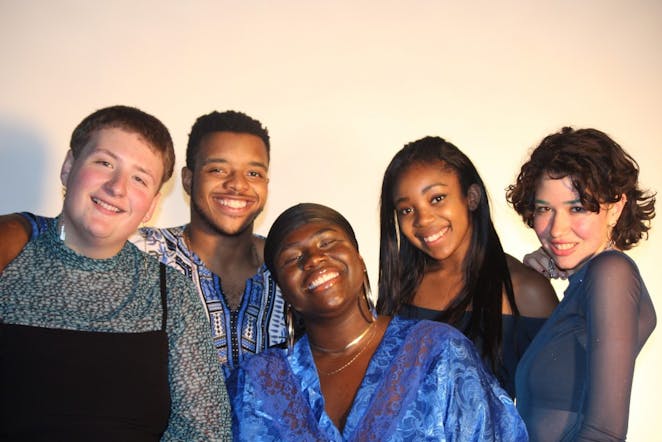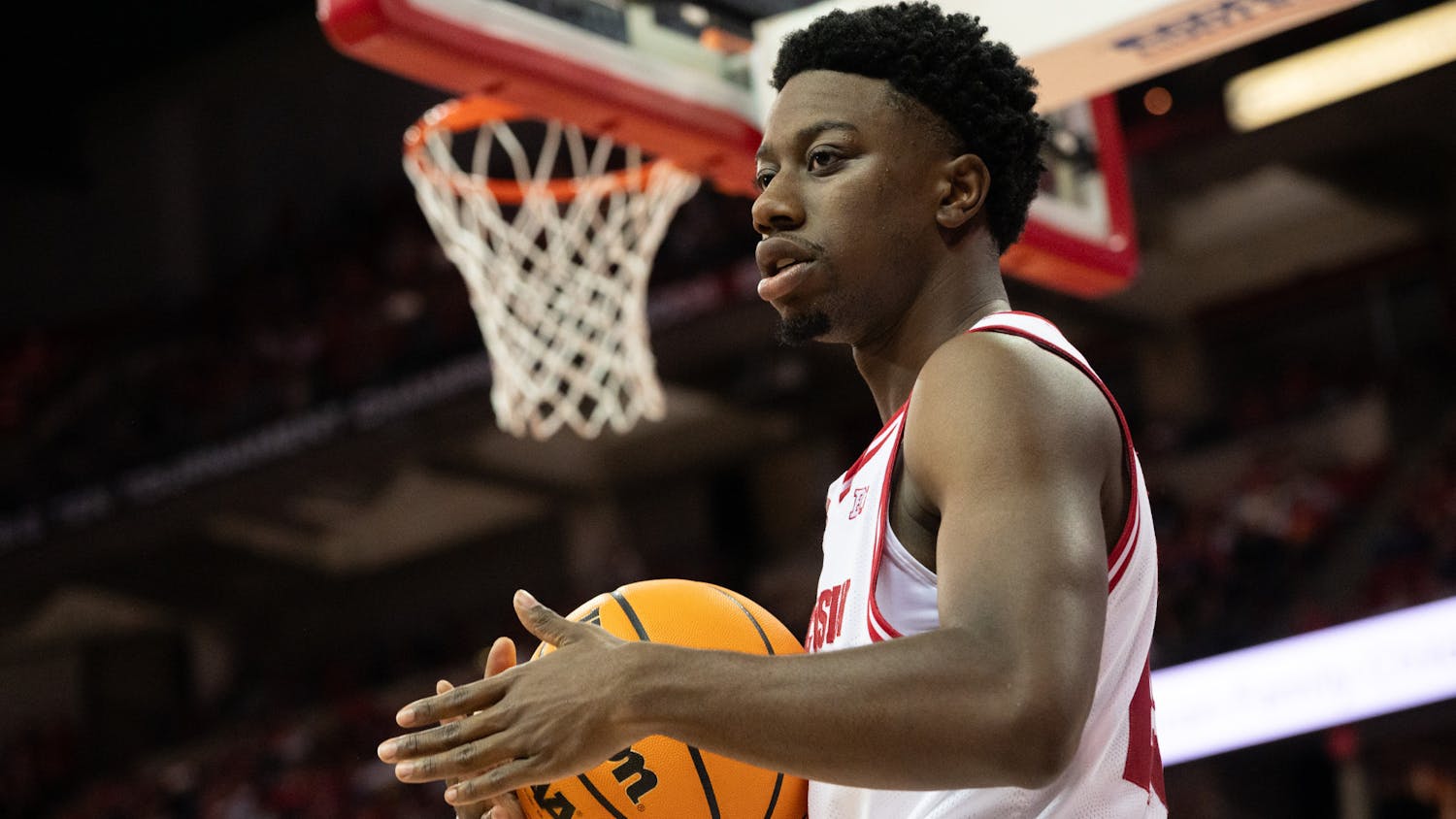As the academic year comes to a close, UW-Madison’s campus buzzes in anticipation for finals week, grade outcomes, graduation and the impending release of summer vacation.
Many students can be found searching for a spot in College Library to spend hours studying, while others spend evenings at the Memorial Union Terrace to escape their looming responsibilities.
Despite the chaos that comes along with the end of the year, a few members of Uprise Poetry Collective, a group of student poets at UW-Madison, took time to reflect on their slam poetry season, which culminated in their success at the College Unions Poetry Slam Invitational in Houston, Texas.
This year the team brought home sixth in the world, the best poet award and best writing as a team.
The five-person team that competed consists of Nile Lansana, Emma Rachum, Duncan Slagle, Isha Camara and Ayomi Obusch. In order to earn their spot on the team, they had to compete against other poets in a series of slams hosted by Uprise.

The co-presidents of Uprise, Mackenzie Berry and Penda Smith, founded the student organization last year in order to organize and foster the existing poetry community at UW-Madison.
While the students within the greater community devote a significant amount of time to their own writing of both page and spoken word poetry, their focus on slam poetry falls within the bounds of the competition season.
During the fall semester, Uprise hosts a series of slams, inviting any students to compete for a spot on the CUPSI team. After the team is declared, they spend months organizing and collaborating in preparation for the competition in the spring.
The poets on the team this year come from very different artistic backgrounds, but they said working as a group and pushing each other brings out the best in each of them.
Lansana grew up around poetry and storytelling in his family and competed in his first slam when he was in fifth grade. His years-long experience offers a unique perspective to the team.
“I’ve been able to bring perspective on not only how the slam is structured, but making sure that writing is the most important,” Lansana said.
Lansana explained he thinks of slam competitions as a game, comparable to a team sport like the soccer he played growing up. Writing, on the other hand, is distinct for him.
Rachum said she has come a long way with her performance and speech skills from her many years spent in forensics throughout middle and high school, but she still has a long way to go with her writing.
“Writing is something that in the future I want to focus on,” Rachum said. “Even though a performance can really make a piece, it really comes down to what you’re writing about and what’s going to touch people.”
Spoken word is different from other speech forms in the way that poets are performing their own original poems in front of an audience. For Slagle, who has studied theater and has been writing for their entire life, spoken word is special because the material is inherently relevant to the performer.
Because of the deeply personal nature of the performance material, forming trust as a team is an essential part of the preparation for competition.
“With slam, any time a team gets formed you have to get to know and trust each other so that you can create the work that is relevant to your lives and comes from you organically,” Slagle said.
In order to prepare for the competition and build relationships with one another, the team spent every practice for two months bringing prompts to discuss and write about together. They wrote about anything they felt, and many poems materialized through similarities between members of the group.

After months of preparation, collaboration and endless hours of dedicated practice, the team collectively had 18 original poems ready for this year’s competition.
Lansana said that a critical part of the team’s success was that there were no poems like theirs at the competition. He said the value of originality is essential to his craft.
“Write stuff only you can write and in the way that only you can write it,” Lansana said. “I think it’s a really dangerous thing for poets to be like ‘I’m a writer I can write about anything.’ You're going to try to write a narrative that's not yours and you're not going to do it justice and someone is going to call you out on it.”
With spoken word poetry growing in popularity and gaining exposure on social media, the team said it is a useful medium to give people a voice, especially marginalized communities.
However, there is a fine line between this opportunity for representation and the responsibility of poets to tell original stories.
The way Slagle sees it, everyone has their own story to tell. These stories come together to create a mosaic of shared experiences, but it is the poet’s responsibility to ensure their work is their own.
“There's something universal about the experiences some of us bring with us to the slam space, but the job of the poet is to find that specific slice of the universal so that you're not trying to speak for other people,” Slagle said.
The poets said they are excited for the future of slam poetry at UW-Madison and in the greater literary community. They said spoken word is important to them because it allows them to share their experiences with the world in a powerful way that makes people listen. It connects them to others in a fundamental way.
“There's a sense of pride, a sense of community, there's a sense of camaraderie and understanding,” Lansana said.
Slagle said he hopes administrative support and community recognition will grow in the future for the spoken word poetry community at UW-Madison.
“Spoken word is bringing together folks that are making real tangible, broadly recognized, very famous strides,” Slagle said. “There’s a freedom and ability to organize around spoken word and connect with anyone in the audience. It’s boundless.”






